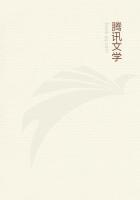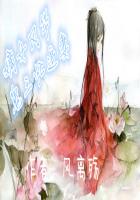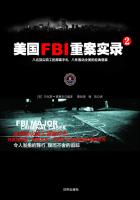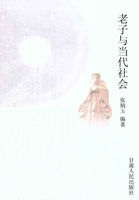But the pencilling was in a different hand. My deduction from this was that some one wished to send me a message, and that Colles had given that some one a sheet of signed paper to serve as a kind of introduction. I might take it, therefore, that the scribble was Colles' reply to my letter.
Now, my argument continued, if the unknown person saw fit to send me a message, it could not be merely one of warning.
Colles must have told him that I was awake to some danger, and as I was in Blaauwildebeestefontein, I must be nearer the heart of things than any one else. The message must therefore be in the nature of some password, which I was to remember when I heard it again.
I reasoned the whole thing out very clearly, and I saw no gap in my logic. I cannot describe how that scribble had heartened me. I felt no more the crushing isolation of yesterday.
There were others beside me in the secret. Help must be on the way, and the letter was the first tidings.
But how near? - that was the question; and it occurred to me for the first time to look at the postmark. I went back to the store and got the envelope out of the waste-paper basket.
The postmark was certainly not Durban. The stamp was a Cape Colony one, and of the mark I could only read three letters, T. R. S. This was no sort of clue, and I turned the thing over, completely baffled. Then I noticed that there was no mark of the post town of delivery. Our letters to Blaauwildebeestefontein came through Pietersdorp and bore that mark. I compared the envelope with others. They all had a circle, and 'Pietersdorp' in broad black letters. But this envelope had nothing except the stamp.
I was still slow at detective work, and it was some minutes before the explanation flashed on me. The letter had never been posted at all. The stamp was a fake, and had been borrowed from an old envelope. There was only one way in which it could have come. It must have been put in the letter-bag while the postman was on his way from Pietersdorp. My unknown friend must therefore be somewhere within eighty miles of me. I hurried off to look for the post-runner, but he had started back an hour before. There was nothing for it but to wait on the coming of the unknown.
That afternoon I again took Mr Wardlaw for a walk. It is an ingrained habit of mine that I never tell anyone more of a business than is practically necessary. For months I had kept all my knowledge to myself, and breathed not a word to a soul.
But I thought it my duty to tell Wardlaw about the letter, to let him see that we were not forgotten. I am afraid it did not encourage his mind. Occult messages seemed to him only the last proof of a deadly danger encompassing us, and I could not shake his opinion.
We took the same road to the crown of the Berg, and I was confirmed in my suspicion that the woods were empty and the watchers gone. The place was as deserted as the bush at Umvelos'. When we reached the summit about sunset we waited anxiously for the sound of drums. It came, as we expected, louder and more menacing than before. Wardlaw stood pinching my arm as the great tattoo swept down the escarpment, and died away in the far mountains beyond the Olifants, Yet it no longer seemed to be a wall of sound, shutting us out from our kindred in the West. A message had pierced the wall. If the blesbok were changing ground, I believed that the hunters were calling out their hounds and getting ready for the chase.















